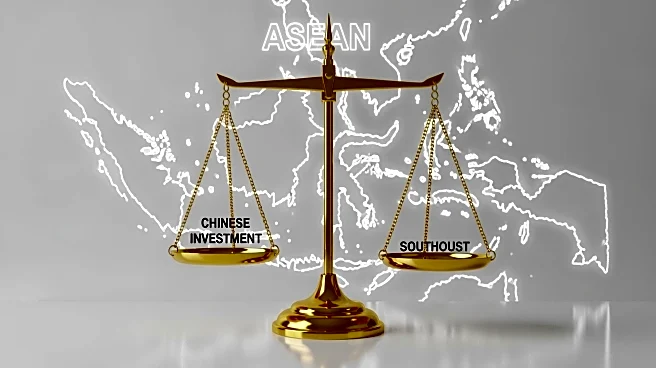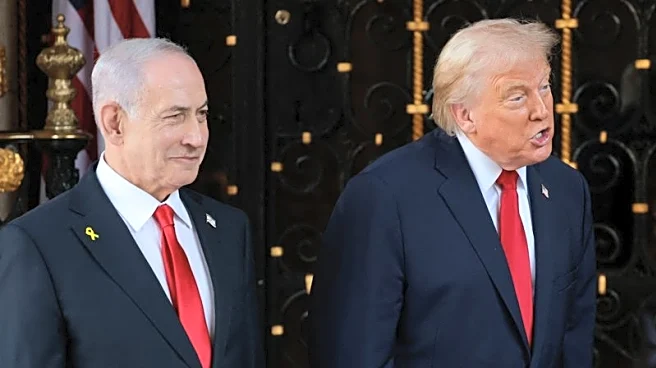What's Happening?
Mari Pangestu, the Indonesian President's Special Advisor for International Trade and Multilateral Cooperation, has emphasized the need for Chinese investments in Southeast Asia to benefit the region. As the expert co-chair of the ASEAN Geoeconomics Task
Force, Pangestu is focused on promoting rules-based cooperation and integration amid global economic uncertainties. The region faces challenges in balancing its trade deficit with China while maintaining strong economic ties. Pangestu's evaluation comes at a time when ASEAN countries are seeking to deepen economic integration and cooperation to ensure sustainable growth and stability.
Why It's Important?
The significance of this development lies in the potential impact on ASEAN's economic landscape. Chinese investments have the power to drive growth and development in Southeast Asia, but they also pose risks if not managed properly. Ensuring that these investments are beneficial to the region can lead to increased economic stability and prosperity. The focus on rules-based cooperation is crucial for maintaining fair trade practices and preventing economic exploitation. This approach can help ASEAN countries leverage Chinese investments to enhance infrastructure, technology, and overall economic competitiveness.
What's Next?
ASEAN countries are likely to continue discussions on how to effectively manage Chinese investments to maximize benefits while minimizing risks. This may involve setting up regulatory frameworks and policies that ensure transparency and accountability. The region could also explore partnerships with other global economic players to diversify investment sources and reduce dependency on China. Stakeholders, including political leaders and economic experts, will play a key role in shaping the future of ASEAN's economic strategy.
Beyond the Headlines
The emphasis on rules-based cooperation highlights the ethical and legal dimensions of international trade and investment. Ensuring that investments are conducted fairly and transparently can prevent exploitation and promote sustainable development. This approach aligns with global efforts to create equitable economic systems that benefit all parties involved.
















